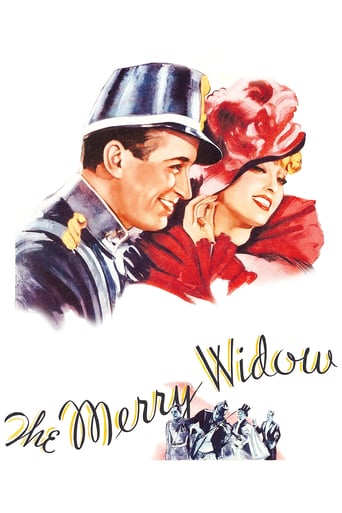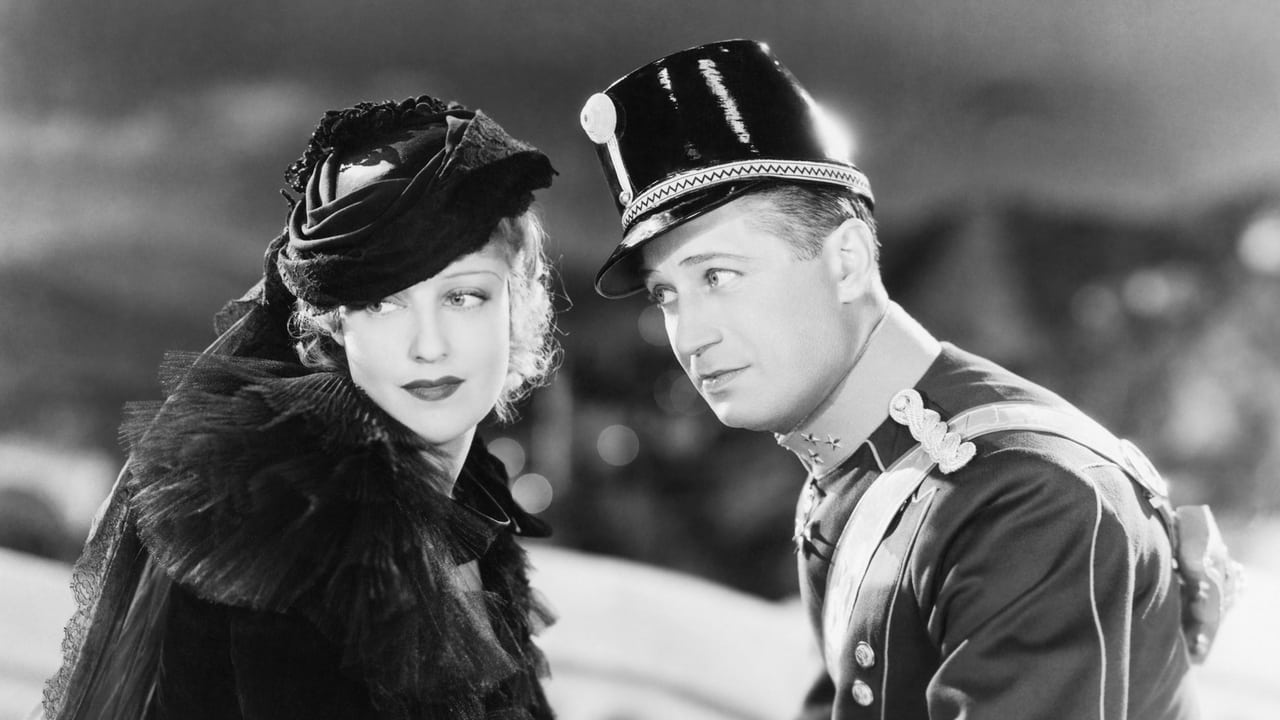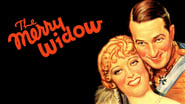chaos-rampant
What a joy this is. I'm sure you have your list of things that you value in film. For me, it is emptiness, narrative asymmetry, layered structure, calligraphic camera meant in the Japanese context.. This has nothing of the sort, and as far as I'm concerned, still manages to be one of the great films of the decade.Nothing except for one thing: paradox. Is this what people refer to when they discuss Lubitsch as the Touch? It could be. I will not say anything about the plot, it's best you go in knowing nothing, it's pretty typical as it is. Basically, you have a man courting a woman three times, but the context and circumscribed situation of their meeting each time changes, and that changes how they know each other. It's a lot of fun, Chevalier and the lovely Jeanette Macdonald have great chemistry. The magic is all in how the bigger picture—the ornate embroidery—is shaped and directed by the continuous stitching of small surprise and paradox. There is all sorts of this, most of it played for laughs. But the core dramatic moments really shine, for instance they each deny having feelings for the other and in the next moment passionately dance together. Isn't this what amazes in life in those few moments when it is really worth the hype? It doesn't go according to script, but spontaneously flows out, bizarrely contradicts itself, a deeper self catches you unaware.By setting it up this way, Lubitsch achieves what only a handful of directors have managed; between obvious setup and paradoxical punchline, that instantaneous space is yours. In that momentarily empty space you deepen yourself by seeing/conciliating in your mind how disparate disharmony can make sense, and by deepening yourself you deepen the characters and world of the film. Lubitsch has set this up so that you stitch. Maybe I was after all wrong about what this film has for it that appeals to me. I will be seeing more from this man, he seems like a gentle, intelligent soul.
Jem Odewahn
An exquisite musical, and one of the best examples of the celebrated "Lubitsch touch". Lubitsch really was the master of sophisticated romantic comedy. Jeanette MacDonald is the widow of the title, whom ladies man Maurice Chevalier woos twice and eventually wins. A lovely confection, with Lubitsch's fluid directing and elegiac camera movements really making it a swell piece of early sound cinema. I loved how he staged the musical numbers, even if I wasn't too fussed over MacDonald's operatic stylings. The film is structurally just about perfect, with the ending "answering" the beginning. Chevalier sings "Girls, Girls, Girls" in the opening scene, yet by the end we know he only wants one girl, the lovely Jeanette. He still has only one thing on his mind, but only one woman on his mind to do it with! Great fun!
theowinthrop
Ernst Lubitsch directed some of the sweetest and funniest sex comedies of the 1930s and 1940s. He was fortunate enough to do three films with Maurice Chevalier and Jeannette MacDonald. They are all charming, but the last one may be the best. Here he took the best known operetta of Franz Lehar and turned it into a superb musical comedy, with new lyrics to tunes like "Maximes", "the Merry Widow Waltz", and "Girls, girls, girls, girls, girls" by Lorenz Hart. At the same time he maintained his marvelous sense of fun - something that may be very much missing from Eric Von Stroheim's earlier, silent film version (that became a study in Balkan politics).THE MERRY WIDOW was composed in 1905, shortly after a major scandal involving the nation of Montenegro. This land still exists, and (with Serbia) retains the now useless joint name of Yugoslavia - the Balkan state that once faced Italy and combined eight countries. Montenegro was a kingdom in 1905, and it's ruler had a Crown Prince named Danilo, who created major scandal by his doings in Paris. Lehar, a Viennese composer (and so, one who usually made fun of the Slavic states) took the story and the name of the Crown Prince, retaining the setting in the embassy in Paris. In Lehar's operetta, the homeland of Pontrevekkio (note how it sounds like Montenegro) is on the verge of bankruptcy, unless the richest widow in the country (Sonia) marries a citizen of the state. She is being pursued by eligible Frenchmen in Paris, so the Pontrevekkian embassy decides to have Count Danillo, a member of the staff there, romance and marry her. The complications that ensue are amusing. Lehar's music is not as waltz oriented on the whole as Johann Strauss II, except for the famous "Merry Widow" number. Most of the tunes have more of a Parisian flair, and one ("Vilia") has a lovely haunting effect. It remains his most popular operetta, although he was to do "THE COUNT OF LUXEMBURG" and "THE LAND OF SMILES" as well.Montenegro did complain (like the Japanese complained about Gilbert and Sullivan's THE MIKADO). The major change in the book nowadays is the name is usually not Pontrevekkio, but Marshovia. When Von Stroheim did his silent version, he concentrated on the Balkan politics involving the Crown Prince, his "cousin" Prince Danillo, Sonia, her rich, insane husband, and the throne. The cast in that had been quite stunning for a 1925 movie, with John Gilbert as Danillo, Roy D'Arcy as the grinning, sadistic Crown Prince, Mae Marsh as Sonia, and Tully Marshall as the sexually mad Baron who weds Sonia (and suffers a stroke on their wedding night). Full of sexual ideas (Marshall has such a foot fetish that he dies having his nose in Marsh's pumps), the highpoint was the waltz, wherein Gilbert and Marsh realize their love to Lehar's strains (the music at that point of the silent version was always the Lehar "Merry Widow" Waltz). It remains a masterpiece of silent cinema (and another proof of Von Stroheim's peculiar genius), but it is not a light hearted as the operetta it was based on.Lubitsch is different. He has fun showing what little Marshovia is like, with sheep and goats appearing all over the streets and in the public buildings. The King (George Barbier) is aware that his wife (Una Merkle) is less than satisfied with him, and has a famous "freudian" moment when he returns without warning to get his ceremonial sword, grabs one, and finds he can't get the belt around his girth. He returns to his antechamber, and confronts Lt. Danillo with his wife. King Achmet is upset, but his solution - he'll cover up the scandal but sends Danillo to Paris.There are many good moments: Danillo's trial for treason is one. So is Ambassador Popoff (Edward Everett Horton) having his aide (Herman Bing) translate a coded message from King Achmet, which basically calls him a blockhead. And, yes, the film chemistry between Maurice and Jeannette is retained, as in their three other movies. But they could not have made more films together. Nolan disliked Chevalier - he had a habit of pinching her. Chevalier thought she was a hypocrite, because (at the time) she was having an affair with Gene Raymond (whom she eventually married). When she was teamed with Nelson Eddy, she and Eddy happened to be quite close friends, which is why their total film output together is eight films.I notice that Clark Gable had some kind of cameo appearance here (it is not in the billing). Two years later he and Jeanette would appear together in SAN FRANCISCO.
Ron Oliver
The Monarch of Marshovia sends a romantic count to Paris to woo back THE MERRY WIDOW whose vast wealth is vital to running the tiny kingdom.Nine years after producing a non-talking film based on the Franz Lehár operetta, MGM mined the same material again, this time as a musical comedy. The Studio would give the film its trademark opulent treatment, with production values of the highest order. Celebrated lyricist Lorenz Hart was engaged to write words for the music. And, to make absolutely certain of success, director Ernst Lubitsch and stars Maurice Chevalier & Jeanette MacDonald were reunited to duplicate their previous triumphs at Paramount Studios.If, ultimately, the film does not have quite the effervescence of Lubitsch's previous pictures, this is probably understandable. MGM, while wonderful with epics and dramas, often took an unnecessarily heavy-handed approach to subjects which should have been given a lighter, airier treatment. Also, the film was released a few months after the imposition of the Production Code, which obviously had a significant effect upon the movie's final persona.Chevalier & MacDonald continue the on screen relationship already well established in their earlier films: she, the rather aloof and powerful female who needs a good man; he, the social inferior who wins her with his enormous Gallic charm. Their singing is vivacious & charming and sometimes you can almost understand her words.Unlike the 1925 version of THE MERRY WIDOW, there is no villain here to provide dramatic tension. The costars, however, provide much comic amusement. Foremost among them is waspish Edward Everett Horton, very funny as Marshovia's nervous Ambassador in Paris. Rotund George Barbier & sprightly Una Merkel make the most of their small roles as the diminutive nation's conniving King and flirtatious Queen.Some of the smaller roles are also humorously cast: Sterling Holloway as Chevalier's loyal orderly; Donald Meek as the King's gossipy valet; and Herman Bing as Horton's dramatic factotum.Movie mavens will recognize Akim Tamiroff as the head waiter at Maxim's & Arthur Housman as a drunk (what else?) trying to gain entry into that establishment, both uncredited.



 AD
AD



